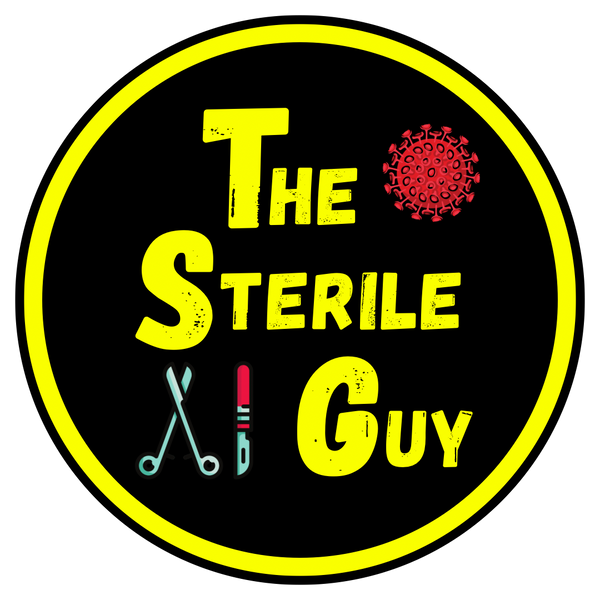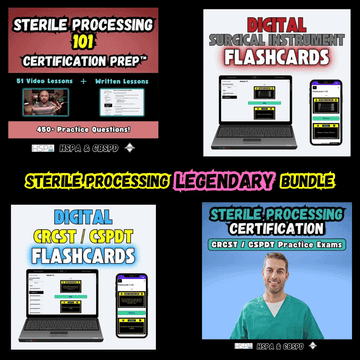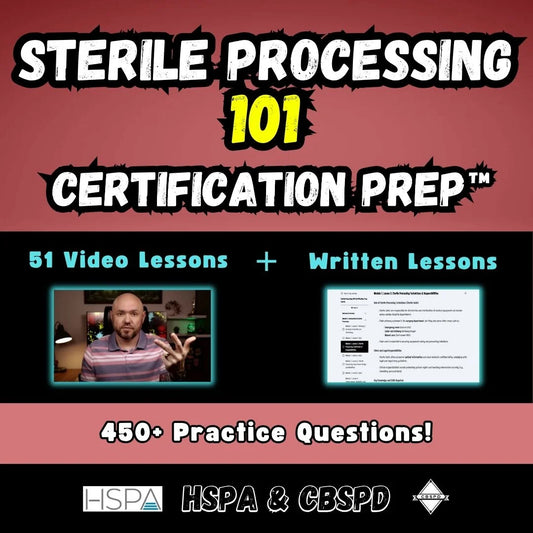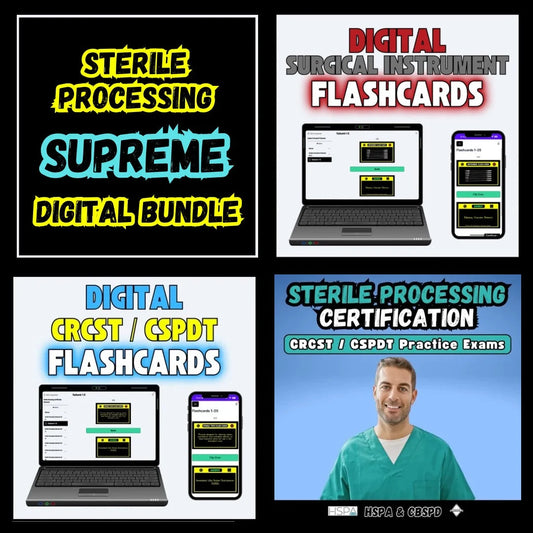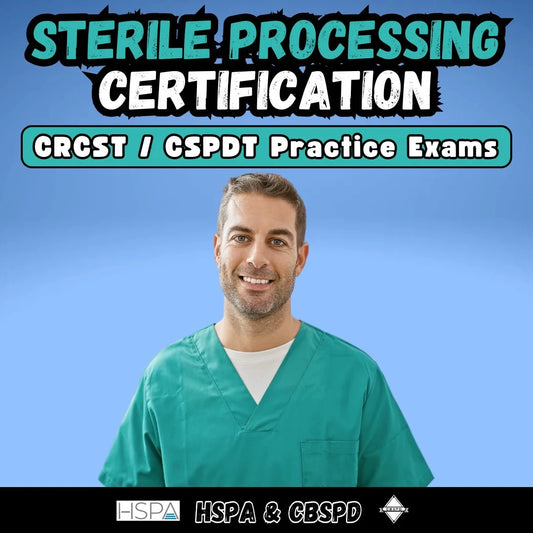What does a Surgical Technician do?

What does a Surgical Technician do?
Surgical Technicians, also called operating room technicians, work alongside and assist surgeons, nurses, and other members of the health care team throughout a surgical operation. The role of the surgical technician is incredibly important because they ensure a sterile and organized environment.
Scope of Practice
Surgical Technicians work in the operating room with surgeons, anesthesiologists, and nurses. Their common tasks and duties can be split into three phases: before the surgical operation (preoperative), during the surgical operation (intraoperative), and after the surgical operation (postoperative).
Before the procedure, surgical technicians focus on prepping the supplies, instruments and the operating room itself for surgery. This includes:
- Disinfecting the equipment and operating room
- Helping with preparing the patient for surgery
- Gathering, counting, and arranging the equipment and surgical tools needed during the surgery
- Preparing patients for the procedure
During the surgery, surgical technicians also have a variety of important responsibilities:
- Keeping the operating room sterile
- Passing surgical tools to the surgeon and the surgeon’s assistant
- Assisting in retracting tissues from the surgical patient
- Ensuring accountability for all instruments and supplies
- Anticipating the Surgeons needs
- Handling specimens
After the surgery, surgical technicians assist with wrapping up the procedure and are responsible for:
- Counting all of the tools and instruments used during the surgery
- Applying dressings to surgical sites
- Disposing of needles and gauze
- Maintaining the sterile environment of the operating room until the patient is brought to the recovery room
Specializations
While many surgical technicians work in general surgery or between a variety of areas, some choose to work specifically in a surgical specialty area. Some of the more common specialized surgical areas include:
- Cardiology
- Neurosurgery
- Organ transplantation
- Orthopedic
- Pediatric surgery
- Plastic surgery
Work environment
Surgical technicians work in hospital operating rooms, outpatient centers, and doctors’ offices. They spend much of their working day in the operating room, preparing for, assisting with, and cleaning up after surgeries. It can become quite warm working under surgical lights in the operating room, especially wearing sterile surgical gowns and gloves. The surgical technician will need to stand for long periods of time, and must remain alert and ready for anything during operations.
Surgical technicians typically work full-time, which may include nights, weekends, holidays, and on-call work. There are opportunities to work part-time, per diem known as “as needed”, and even work as a travel surgical technician going to many different assignments and making extra money.
Becoming a Surgical Technician
Individuals interested in becoming a surgical technician must be detail-oriented. The work of a surgical technician is incredibly important to ensure a sterile and well-organized environment in the operating room. They need to make sure that all tools are present for the surgery, and accounted for after the surgery is done. Attention to detail is essential to success in this role, and errors could be life threatening. Surgical technicians must work well under pressure and have great communication skills.
Higher Education Requirements
Surgical technicians may receive their higher education training in a community college, vocational school, university, hospital, or the military. In order to become a surgical technologist, a certificate program that includes specialized education and training is required in most states. There are states that do not have set standards in which many hospitals still train Surgical technicians “on the job” with the didactic training and work experience. Check with your state laws for details.
Surgical technician training programs can be as short as 12 months for a certificate or two years for a combined associate degree plus specialized training. Typical entrance requirements include a high school diploma and prerequisite courses such as anatomy and physiology, medical terminology, and microbiology.
Certification Process
Certification is strongly suggested and preferred by many employers. It is also a legal requirement in many states as well. The most common, Certified Surgical Technologist (CST) credential is offered by the National Board of Surgical Technology and Surgical Assisting (NBSTSA). Once you have gone through an official training program, you will have reviewed the material required to pass the certification. For more help you can access CST practice exams designed specifically to help you pass the CST certification exam.
Career Opportunities and Outlook
Surgical technicians can expect a median annual salary of $48,530 or roughly $23.33 per hour.
The Bureau of Labor Statistics expects the employment of surgical technologists will continue to grow at a rate of 5.9% (or 6,500 jobs) over the next decade. This is due to advances in medical technology and more operations are being done to treat many types of illnesses and injuries.
With additional experience and education, some surgical technicians become first surgical assistants or registered nurses. Others advance by specializing in a particular area of surgery. Some technicians manage central supply departments in hospitals or take positions with insurance companies, sterile supply services, and surgical equipment firms.
Share
Let customers speak for us
from 241 reviewsI took the practice test and I got a 91% on my certification exam!!
This course was the extra boost that I needed in order be confident in passing the exam. Thank you for all the information provided. I even refer to your notes while working.
Very helpful to me I can study any where at my own pace and low cost than going to school...I'm glad that there is something like this online to help anyone who want to pursue their career as a sterile processing tech.
I loved it, it’s very informative and the questions are great, it’s a great resource to purchase if you want to prepare for your certification exam!
I’ve really enjoyed this course so far. It delivers the information in a straightforward, digestible way. The Sterile Guy has compiled a highly effective program. Thanks very much from one highly satisfied customer!
The practice exams are detailed and easy to navigate. Brandon continues to show his passion in this industry by sharing his knowledge with up-and-coming techs. I also recommend investing in his flashcards. It has helped me greatly. Thank you, Brandon!,
These practice quizzes really helped me get the hang of answering questions related to instruments and the processes of preparing them! I even bought them twice cause I ran out of time lol. Super helpful!
I recently completed the Sterile Processing Guy course online and was extremely impressed. The content was clear, well-organized, and easy to follow. It helped me better understand important concepts like decontamination, disinfection, and sterilization. I appreciated how practical and informative the lessons were, it definitely made studying for certification feel more manageable. I highly recommend this course to anyone pursuing a career in sterile processing!
I won’t lie, I failed the first time around. So I decided to buy this practice test and I passed with flying colors my second go. Highly recommend to anyone interested in the CER, it helped a lot!
The flash card quality is amazing! Bravo sir! The card quality is way above average, questions are great! I’m still learning, utilizing these cards and your practice tests. Thanks for all the info!
I passed the CRCST exam. Taking reg sterile guy practice test over and over definitely helped get the job done.
This certification prep course is a must. Great videos with a lot of information and plenty of of practice exams.
These flashcards are so helpful and well put together. Highly recommend!
I'm really happy that I purchased the SP practice exam. I love how if you answer the question incorrectly, the correct answer will include the page number of the text book to find the answer. The questions are literally based on the textbook. I suggested "The Sterile Processing Guy" to my friend that is studying for the exam as well.
